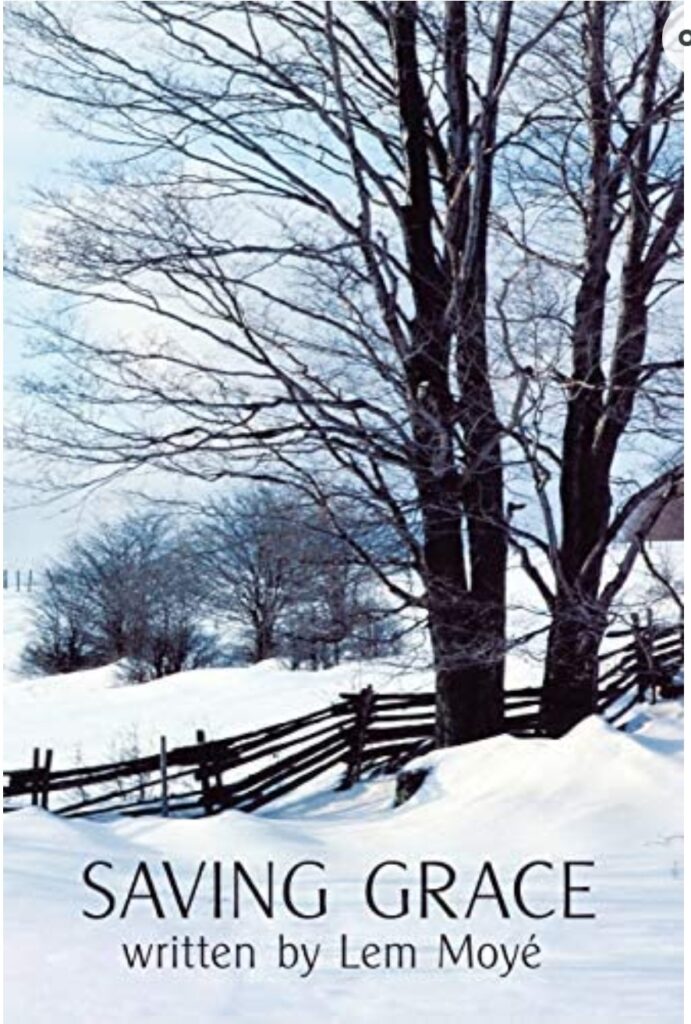
The strong left ventricle of Ronald Nicholson’s heart had the mammoth task of propelling enough oxygen-rich blood out to the CEO’s healthy body with each vigorous beat. However, the first organ that receives this fresh supply of nutrient and oxygen enriched blood was the heart itself. Right after the blood leaves the left ventricle on its way to the rest of the body, some of it is siphoned off and returned directly to nourish the muscle that just pumped it out, through vessels that cover the heart like a crown.

At birth, these coronary arteries are wide open, large quantities of blood pouring though them to nourish the heart. However, over time the interior walls of these living tubes become roughened. Deposits of fat, mixed with small blood clots and connective tissue build up like craggy hills on their smooth, inside walls.

Ronald Nicholson had never known a day of chest discomfort in his life. For no apparent reason, a tiny fissure on top of one these greasy mounds opened
Just a little bit, but enough.

A micro particle of fat from deep inside the greasy mound burped up and out. Free in the blood vessel, it joined the nutrients, water, waste and cells as they flowed through the vessel, but not before it scraped along the blood vessel wall. Just a small scrape.
The living vessel, irritated by the scrape, narrowed. Just a little, but a little too much. Blood flow though the injured vessel fell below a crucial level.
The Nicholson heart muscle reacted badly. It understood nothing of fat deposits or vessel contraction. It only knew that suddenly it wasn’t getting enough nutrients and oxygen. Deprived, it started to cramp in small, isolated spots.

Sitting, watching the animated discussion between Chairman Kassell and the errant Serot, the CEO leaned forward, suddenly nauseous. He couldn’t remember the last time he’d been sick to his stomach.
Now the damaged vessel wall released a miniscule amount of protein. Not much, but too much. Fifty chemical reactions and fifteen seconds later, a new blood clot developed on the vessel wall, shutting blood flow in the narrowed vessel off completely. The starving heart muscle, desperate for oxygen, spasmed in anguish.
Nicholson bolted upright in his seat as a sudden sledge hammer of pain slammed through his chest.
He tried to stand, but only managed to grab Lindsey’s arm. He struggled to speak. To tell her of his jealousy and admiration of her. His love of science. Of his sweet daughter. Of life as a young child watching his father love his Buick LeSabre in Sedalia. Of wondering what it would be like to have a car roll over onto your chest.
“This, is what it feels like,” he’d have told her.
But the CEO couldn’t speak.

With no coronary blood flow, poisons built up everywhere in the organ. The delicate tissue in the heart that controls the heart rhythm now collapsed in the midst of this massive chemical failure, and the rhythm system that had seemed to effortlessly control two billion CEO heartbeats, fell apart.
The effect was instantaneous. The heart muscle, itself dying, contracted feebly as it tried to squeeze blood out to the rest of the body. But, without electrical coordination, it ceased to be an effective pumping mechanism. Like a galley whose rowers were dying and out of sync, coordinated effort ceased, and blood flow stopped.
Skin, calves, biceps, pancreas, liver, glands, reacted at once to the absent blood flow, falling back on protective mechanisms that had evolved over thousands of years.
But one organ reacted differently.
The brain.

That three pound organ that accounted for less than 2% of CEO body weight, but demanded 20% of his total body oxygen and 25% of his total blood sugar had no reserve. With oxygen levels plummeting and poisons reached lethal levels in seconds, Nicholson’s brain writhed in this new, toxic environment.
A thousand dead brain cells in one second. Five hundred thousand dead in ten. Three billion dead in thirty.
The entire affair took less than a minute.
